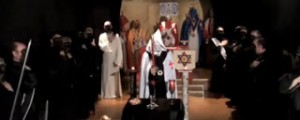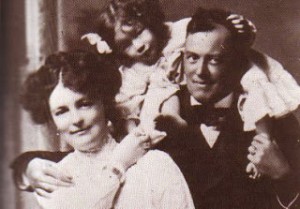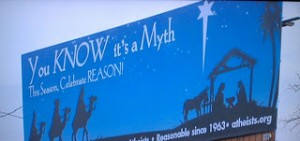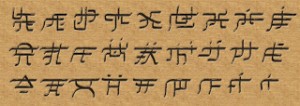While writing a chapter for my new novel yesterday, I came to a scene where the main character attends an OTO initiation. Part of my shtick for this new book is that it’s an urban fantasy, but it uses real world occult practices as a basis for the magick, so I wanted it to be relatively accurate. No problamo I thought. I know Crowley’s works. I should be able to find an initiation ceremony somewhere. Lo and behold, it’s a secret.
It made me double-take. Someone in this day and age honestly thinks they can keep something a secret? Coming from the OTO makes it even more comical. Crowley made a name for himself by revealing the secrets of the Golden Dawn. My respect for him comes from that act, as the rebel, breaking down the temple doors. Yet it seems he honestly expected his acolytes to do as he said and not as he did.
I understand their reasoning. Initiations are designed to break down an applicant’s preconceptions about themselves. Fear is a way to do this. To make them react to a real threat. Engendering a fear of the unknown, of what’s about to happen, is a tried and true method. But it seems the OTO has a misunderstanding of where that fear comes from. The rituals themselves are designed to provoke the necessary response. I guarantee, if you strip someone naked, blindfold them, bind their hands, and put a dagger to their throat, you will get a fear response. No matter how much the initiate trusts you or how far ahead they knew this was coming.
One the supposed admonishments to magicians from the Emerald Tablet of Thoth is, “to keep silent.” I admit I have a hard time doing this. Blog case in point. But what does it really mean? At one time, I’m sure it was meant to protect magi from persecution. But now I only see it used as an excuse to withhold knowledge so the teacher can fleece the student.
It took me only a few minutes of Googling to find accounts of OTO initiations. I describe what I learned in my book. Much of it probably inaccurate, but I’m sure some of it is truth. You just can’t keep secrets in the information age. And it seems silly to try when what’s important is not the secrets but the mystery. You can never understand the experience until you have the experience.
Perhaps what Thoth really meant is that you should not try to describe too much what magical processes should feel like. Each magus comes to magick on their own, and it is impossible to impart that knowledge. Perhaps it was Thoth’s way of saying, “Do not make thine students and colleagues into armchair magicians. Lead them to the well, but do not describe the water.”
At least this is what makes sense to me in out times. Tell me your opinion.




